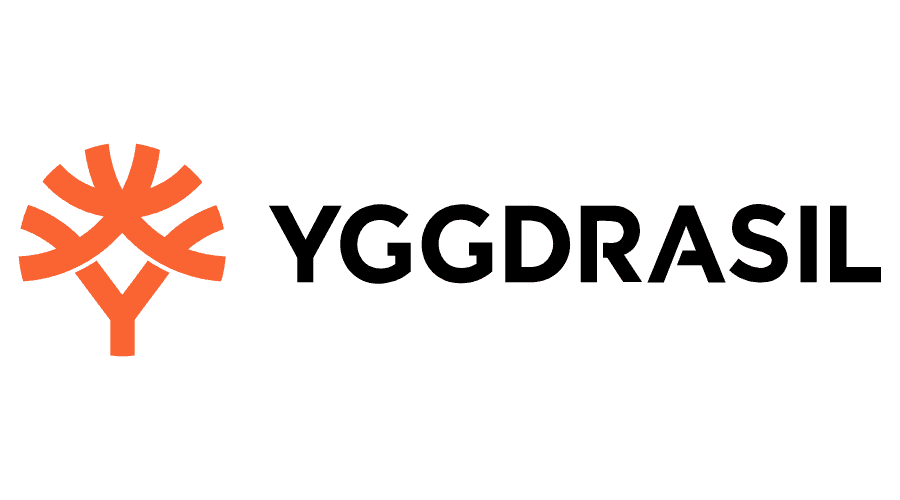เมื่อเราต้องการเล่นเดิมพันกับ สล็อตเว็บตรง หรือ เว็บสล็อต ออนไลน์สิ่งแรกที่เรามักจะนึกถึงในการเล่นคือจะเป็น สล็อต ออนไลน์ และเว็บไซต์ที่ควรเลือกเล่นค่ายจะเป็น เว็บตรง ไม่ผ่านเอเย่นต์ ทำให้เกิดคำว่า สล็อตเว็บตรง ไม่ผ่านเอเย่นต์ ขึ้นมา ซึ่งแสดงถึงความน่าเชื่อถือ และเป็นเว็บแม่เว็บหลักที่ให้บริการอย่างถูกต้องตามกฎหมาย แต่ก็ยังมีหลายคนไม่เข้าใจเกี่ยวกับเว็บสล็อตที่เป็นเว็บตรงว่ามันดีอย่างไร ทำไมเราควรเล่นกับสล็อตเว็บตรง วันนี้เราจะมาทำความเข้าใจทุกอย่างในบทความนี้กันเลย
มีหลายคนสงสัยว่า สล็อตเว็บตรง คืออะไร มันต่างจากเกมสล็อตอย่างไร ? จริง ๆ แล้วคำว่า สล็อตเว็บตรงไม่ผ่านเอเย่นต์ คือ เว็บคาสิโนออนไลน์ที่ให้บริการเกมสล็อตออนไลน์ ซึ่งเป็นเว็บที่เจ้าของเว็บจริง ๆ ให้บริการด้วยตนเอง เป็นเว็บที่จดทะเบียนถูกต้องตามกฎหมายให้การอนุญาตให้เปิดเว็บพนันได้ในประเทศที่อนุญาต เว็บเหล่านี้เราจะเรียกว่า เว็บตรง ไม่ผ่านเอเย่นต์ โดยจะมีความน่าเชื่อถือมากกว่าเว็บสล็อตผ่านเอเย่นต์ ซึ่งมีวิธีการสังเกตง่าย ๆ
การสังเกตว่าเว็บไหนคือ สล็อตเว็บตรง คุณสามารถเข้าไปที่หน้าเว็บสล็อตนั้น ๆ และตรวจสอบดูระบบต่าง ๆ เช่น การสมัคร การฝากเงิน การถอนเงิน รูปร่างหน้าต่างของเว็บไซต์ ซึ่งจะมีความน่าเชื่อถือ และมีชื่อเว็บที่เป็นเอกลักษณ์ และส่วนใหญ่เว็บตรงจะมีรายละเอียดของการขออนุญาตเปิดเว็บพนันออนไลน์ หรือเว็บสล็อตออนไลน์อย่างถูกต้องตามกฎหมายที่จะแสดงเอกสารไว้ที่หน้าเว็บเพื่อโชว์ว่าเว็บนั้น ๆ เป็นเว็บสล็อตออนไลน์ที่ให้บริการจริง มีใบรับรองถูกต้องนั้นเอง
อย่างดี

ด้วยเหตุผลง่าย ๆ ที่ว่าทำให้ทุกคนควรเลือกเล่นสล็อตออนไลน์ หรือแม้จะเป็นเกมคาสิโนออนไลน์ต่าง ๆ จะต้องเลือกเล่นกับ สล็อตเว็บตรง ไม่ผ่านเอเย่นต์ เพราะอย่างที่เราบอกไปหากขึ้นชื่อว่าเป็นสล็อตเว็บตรงแน่นอนว่าจะต้องมีใบอนุญาตเปิดเว็บพนันออนไลน์ที่ถูกต้องตามกฎหมายในประเทศที่ให้อนุญาต ทำให้เว็บตรงเหล่านี้สามารถดำเนินการให้บริการเล่นล็อตออนไลน์ได้อย่างถูกต้อง และไม่ต้องเป็นกังวลเรื่องโดดปิดเว็บไซต์อย่างแน่นอน มั่นใจได้เลยว่าหากเล่นและสร้างกำไรได้แล้ว จะสามารถถอนเงินได้ทันที
อีกอย่างเว็บสล็อตออนไลน์ที่เป็นเว็บตรง จะมีระบบของเว็บที่ดีมาก ๆ และมีบริการช่วยเหลือที่พร้อมสำหรับนักพนันทุกคนที่เข้ามาเล่น เพราะสล็อตเว็บตรงจะต้องมีการขอใบอนุญาตทำให้เว็บที่มีใบรับรองจะต้องมีมาตรฐานของเว็บคาสิโนที่เป็นไปตามมาตรฐานสากล ไม่ว่าจะเป็น ตัวระบบของเว็บไซต์ ระบบฝากถอนเงิน ช่องทางการฝาก ช่องทางการติดต่อ เกมที่ให้บริการ ความเสถียรของระบบ สิ่งต่าง ๆ จะถูกตรวจสอบเป็นอย่างดีก่อนที่จะนำมาให้บริการนักพนันทั่วโลกก่อนเสมอ ทำให้เราจึงอยากให้นักพนันทุกคนเลือกเล่นกับสล็อต เว็บตรง หรือเว็บคาสิโน ไม่ผ่านเอเย่นต์จะดีที่สุด
| ⚽️สล็อตออนไลน์ดีที่สุด | FAFA456 เป็นผู้ให้บริการเว็บ สล็อตเว็บตรง ที่ดีที่สุด |
| 🎰เล่นกับสล็อตเว็บตรง | รวมค่ายเกมสล็อตเว็บตรงชั้นนำจากทั่วโลก |
| ✅ระบบฝาก-ถอนไว | โด่งดังเรื่องฝากถอน ทำรายการไม่เกิน 1 นาที |
| 🥇โปรโมชั่นวีไอพี | มีโปรโมชั่นสล็อตมากมาย |
| 📜ใบอนุญาติ | เป็นเว็บตรง มีใบอนุญาติ |
| 💁♀️บริการลูกค้า | มีพนักงานแชทสด และไลน์ สอบถามได้ 24/7 |
| 🎲เกมพนันอื่นๆ | รวมเกมพนันเยอะที่สุด ทั้ง ป๊อกเด้ง ไฮโล หวย อีสปอร์ต จบที่เดียว |
การสมัครสมาชิกของ สล็อต เว็บตรงนั้นสามารถเข้าไปสมัครได้ง่าย ๆ โดยคุณไม่จำเป็นต้องยื่นเอกสาร หรือเสียค่าใช้จ่ายในการสมัครแม้แต่บาทเดียว ทางเว็บสล็อตออนไลน์ที่เป็นเว็บตรงไม่ผ่านเอเย่นต์จะให้คุณสามารถเข้าไปสมัครได้ฟรี ๆ
โดยไม่มีเงื่อนไขใด ๆ แอบแฝงอยู่ พร้อมกับมีโปรโมชั่นสำหรับสมาชิกใหม่ที่สมัครและฝากเงินเข้ามาเล่นครั้งแรกอีกด้วย ซึ่งวิธีสมัครสล็อตเว็บตรงนั้นมีขั้นตอนง่าย ๆ ที่คุณสามารถสมัครผ่านหน้าเว็บไซต์ได้เลยทั้งในคอมพิวเตอร์หรือมือถือก็สมัครได้ดังนี้

สำหรับทุกคนที่ได้เลือกเข้ามาใช้บริการ ที่เว็บ สล็อต ออนไลน์ของเรา ทุกคนจะเข้ามาพบเจอกับเกมสล็อตยอดฮิต โดยทุกตัวเกมที่ทางเราได้ทำการคัดสรรเข้ามานั้น เป็นเกมสล็อตออนไลน์ ที่ถูกนำเข้ามาจากผู้ให้บริการเกมโดยตรง ไม่ผ่านตัวแทนหรือเอเย่นต์ หากทุกคนได้เข้ามาทำการเดิมพัน จะสามารถทำกำไรกลับไปได้แบบจุใจ และทุกตัวเกมสล็อตภายในเว็บไซต์ของเราก็มีอัตราการจ่ายเงินรางวัลแบบไม่อั้นจะทำกำไรให้กับทุกคนที่เลือกเข้ามาใช้บริการได้เป็นอย่างดีแน่นอน
ซึ่งทางสล็อตเว็บตรงของเรา ยังเป็นเว็บไซต์เดียวในไทย ที่ได้รวบรวมเกมพนันมาให้ทุกคนเลือกเล่นไว้แบบหลากหลาย ที่ไม่ว่าผู้เล่นทุกท่านจะชื่นชอบเกมพนันในแนวไหนก็ตาม ทางเว็บสล็อตออนไลน์ของเรา ก็ได้รวบรวมไว้หมดแล้ว ไม่ว่าจะเป็นเกมสล็อต , บาคาร่า , แบล็กแจ็ค , รูเล็ต , ไฮโล , ไฮโล , คาสิโนสด ทุกคนก็สามารถเข้าเล่นได้ทุกตัวเกม ซึ่งคุณยังสามารถทำการวางเดิมพันขั้นต่ำ เริ่มต้นที่จำนวนเงิน 1 บาท เป็นต้นไปได้ทุกตัวเกม บอกได้เลยว่า ทุกคนไม่ควรพลาด เว็บสล็อตออนไลน์ของเรา กันโดยเด็ดขาด
แน่นอนว่าค่ายเกม สล็อตออนไลน์ที่ให้บริการอยู่ในตอนนี้มีมากมายเหลือเกิน แต่ทางเว็บตรงนั้นจะให้บริการเฉพาะค่ายเกมที่มีความน่าเชื่อถือ และเป็นค่ายเกมถูกกฎหมายเท่านั้น โดยจะมีอะไรบ้างไปดูกันเลย

สำหรับค่ายเกมสล็อตต่อไป ที่ทางเราจะมาขอทำการแนะนำ ก็คือ ค่ายเกม Yggdrasil เป็นอีกหนึ่งค่ายเกมที่พัฒนาเกมสล็อตใหม่ๆ เข้ามาอยู่ตลอด โดยทุกท่านจะพบเจอกับเกมสล็อต ที่มีรูปแบบการเล่นที่แปลกใหม่ ไม่มีความจำเจแม้แต่นิดเดียว และมาพร้อมกับโบนัสพิเศษรางวัลใหญ่ มามอบให้กับทุกท่าน และเป็นค่ายเกมที่ได้รับความนิยมมากที่สุดในขณะนี้ อีกด้วย

สำหรับค่ายเกมสล็อตแรก ที่ทางเราจะมาแนะนำ ก็คือ ค่ายเกม joker โดยเป็นอีกหนึ่งผู้ให้บริการเกมสล็อตที่ได้รับความนิยมมากที่สุดในขณะนี้ และได้การตอบรับจากผู้เล่นทั่วโลกดีที่สุดในไทย โดยมีความโดดเด่นในเรื่องของเกมสล็อตที่มีคุณภาพ ซึ่งอัตราการจ่ายเงินรางวัลที่ดี ซึ่งมีเกมสล็อตออนไลน์มาให้ทุกคนได้เข้าเลือกเล่นมากถึง 300 เกม การันตีได้เลยว่าเป็นค่ายเกมที่ รวบรวมความสนุกไว้มากที่สุด

สำหรับค่ายเกมสล็อตสุดท้าย ที่ทางเราจะมาทำการแนะนำ ก็คือ ค่ายเกม Pg slot บอกได้เลยว่าเป็นอีกหนึ่งค่ายเกมนี้ ที่ได้รับความนิยมมากที่สุดในไทย เป็นผู้ให้บริการเกมสล็อตที่มีคุณภาพมากที่สุด โดยทุกตัวเกมได้มาพร้อมกับการแตกแจ็คพอตรางวัลใหญ่ไม่อั้น และโบนัสพิเศษต่างๆ โดยค่ายเกมนี้ได้พัฒนาเกมสล็อตมาให้เลือกเล่นมากถึง 300 เกม และทุกตัวเกมก็ได้มีอัตราการแตกเงินรางวัลที่ง่าย แตกหนัก แตกบ่อย

สำหรับค่ายเกมสล็อตถัดไป ที่ทางเราจะมาทำการแนะนำในวันนี้ ก็คือ ค่ายเกม pragmatic play เป็นผู้ให้บริการเกมสล็อตชั้นนำระดับโลก และได้เปิดให้บริการมาตั้งแต่ปี 2005 ซึ่งถูกตัวเกมสล็อตจากค่ายนี้ ก็มีเอกลักษณ์ และรูปแบบการเล่นที่แปลกใหม่ ไม่ว่าจะเป็นภาพกราฟิกเสียง และโบนัสพิเศษ ที่มามอบให้ทุกคนที่เลือกเข้ามาใช้บริการแบบไม่จำกัด โดยมีเกมสล็อตให้ทุกคนได้เข้าเลือกเล่นมากถึง 300 เกม

สำหรับค่ายเกมสล็อตต่อไป ที่ทางเราจะมาขอทำการแนะนำ ก็คือ ค่ายเกม 918Kiss โดยเป็นอีกหนึ่งค่ายเกมที่ได้รับความนิยมจากผู้เล่นทั่วโลก เพราะว่าค่ายเกมนี้ได้ทำการคัดสรรเกมสล็อต มาให้เลือกเล่นหลากหลาย และมีภาพกราฟิกที่สวยงาม พร้อมกับอัตราจ่ายเงินที่ดี ไม่ว่าจะเป็นผู้เล่นมือใหม่หรือมืออาชีพ ก็จะสามารถกอบโกยเงินรางวัล กลับไปได้แบบจุใจทุกคน

สำหรับค่ายเกมสล็อตที่ทางเราจะมาทำการแนะนำ ก็คือ ค่ายเกม SlotXOที่ได้เปิดให้บริการอยู่ตลอดทั้งวัน ทุกคนสามารถเข้ามาสร้างรายได้เสริม ให้กับตัวเองได้ตลอดทุกช่วงเวลา ซึ่งทุกตัวเกมสล็อตจากค่ายนี้ก็ได้มาพร้อมกับแจ็คพอตรางวัลใหญ่แจกไม่อั้น ไม่ว่าจะเข้าเดิมพันช่วงเวลาใดก็ตาม ก็จะสามารถทำกำไรกลับไปได้เป็นอย่างดี โดยรวบรวมเกมสล็อตให้คุณเข้าเลือกเล่นมากถึง 300 เกม
มีคำถามเกี่ยวกับการฝากและถอนเงินที่หลาย ๆ คนอยากรู้ในการเข้าไปฝากและถอนเงินของสล็อตเว็บตรง ไม่ผ่านเอเย่นต์ บอกเลยว่ามีระบบฝากและถอนเงินที่รวดเร็ว และมีความทันสมัยเพื่อให้สะดวกแก่ผู้ที่มาใช้บริการมากขึ้น เนื่องจากเว็บสล็อตไม่ผ่านเอเย่นต์ให้ความสำคัญอย่างยิ่งกับรูปแบบขั้นตอนการฝากและถอนเงินนี้ มีการพัฒนาระบบ และมีการเพิ่มช่องทางการฝากที่รวดเร็วอยู่เสมอเพื่อให้การฝากและถอนเงินรวดเร็ว และมีหลายช่องทางที่ปลอดภัยที่สุดอีกด้วย

คุณสามารถทำการฝากเงินได้อย่างง่ายดายบนเว็บสล็อตออนไลน์ ถูกกฎหมาย มีช่องที่รองรับมากมาย นักพนันสามารถเข้ามาฝากเงินขั้นต่ำได้ ที่เว็บไซต์คาสิโนออนไลน์ที่เป็นเว็บตรง สามารถเริ่มต้นได้ตั้งแต่ 200 บาทขึ้นไป แต่ตามเงื่อนไขในการรับโบนัสคาสิโนออนไลน์ต่าง ๆ รวมถึง สล็อต เครดิตฟรี
โบนัสเงินฝาก คุณต้องเริ่มต้นฝากเงินที่ 300 บาทขึ้นไปถึงจะได้รับโปรโมชั่นภายในเว็บไซต์ สำหรับขั้นตอนการฝากก็ง่าย ๆ โดยไปที่การฝากเงิน เลือกช่องทางที่สะดวก แล้วทำตามขั้นตอนของแต่ละช่องทางได้เลย โดยมีช่องทางการฝากเงินดังนี้
การถอนเงินจาก สล็อตเว็บตรง ไม่ผ่านเอเย่นต์ มีระบบการถอนเงินที่ง่ายดายมาก ๆ คุณสามารถถอนเงินได้ทันทีหากชนะการเดิมพันต่าง ๆ ในเว็บไซต์
โดยใช้เวลาไม่นานก็เสร็จภายใน 30 นาที ซึ่งสามารถเข้าไปที่การถอนเงิน ระบุจำนวนเงินขั้นต่ำสำหรับการถอนเงินบนเว็บไซต์แต่ละครั้งคือ 500 บาท หรือจะถอนมากกว่านั้นก็ได้เช่นกัน
อย่างไรก็ตามเงินของคุณสามารถถอนได้สูงสุด 500,000 บาท คุณสามารถฝากเงินเข้าธนาคารที่ลงทะเบียนของคุณผ่านระบบ ทรูวอเลท อัตโนมัติ สะดวก และปลอดภัย บัญชีบนเว็บไซต์ได้เลยง่าย ๆ

สล็อตเว็บตรง ไม่ผ่านเอเย่นต์ ถือเป็นหนึ่งในตัวเลือกของการเข้าไปเล่นสล็อตออนไลน์ได้อย่างปลอดภัยบนเว็บไซต์สล็อตออนไลน์ที่มีให้บริการมากมาย ซึ่งเราได้บอกวิธีการสังเกตการดูว่าเว็บไหนเป็นเว็บสล็อตไม่ผ่านเอเย่นต์ และเป็นเว็บไซต์ที่สามารถเข้าไปเล่นแล้วได้เงินจริง หากคุณเป็นกังวลว่าจะเลือกเข้าไปเล่นเว็บสล็อตไม่ถูกต้อง สามารถกดเข้าไปเล่นบนสล็อตเว็บตรงที่เราแนะนำคุณที่นี่ได้เลย ซึ่งเว็บไซต์ที่เราแนะนำไปนั้นจะเป็น เว็บสล็อต ออนไลน์ ที่มีใบอนุญาตถูกต้องตามกฎหมาย มีระบบต่าง ๆ ที่ทันสมัยสะดวกสบายในการเล่นมากที่สุด
ง่าย ๆ เลย สล็อตเว็บตรงจะเป็นเว็บหลักเว็บแม่ที่เป็นเจ้าของตัวจริงที่มีการจัดทะเบียนขอรับใบอนุญาตอยากถูกต้องมีความปลอดภัยสูง และเว็บที่เล่นผ่านเอเย่นต์จะเป็นเหมือนกับเว็บสาขาลูก ๆ ที่ใครก้สามารถเข้าไปเปิดได้ ซึ่งเสี่ยงต่อการโดดโกง และการโดดปิดเว็บไซต์นั้นเอง
ทางเว็บสล็อตออนไลน์ที่เราแนะนำไปนั้น จะสามารถเข้าไปเริ่มต้นเดิมพันสล็อตออนไลน์ในเกมต่าง ๆ ค่ายต่าง ๆ โดยเริ่มต้นเดิมพันได้ตั้งแต่ 1 บาทเป็นต้นไป
ใครที่เล่นสล็อตออนไลน์หรือเกมคาสิโนออนไลน์แล้วชนะเงินรางวัลหากมีเงินสะสมจากการชนะมากกว่า 500 บาทสามารถถอนเงินได้ทันที โดยเงินจะเข้าไปยังบัญชีธนาคารที่คุณลงทะเบียนเอาไว้
สำหรับทางเว็บสล็อตที่เป็นเว็บตรงมีให้บริการแต่ค่ายเกมสล็อตระดับโลกที่สามารถมั่นใจและไว้ใจในการเล่นได้ ไม่ว่าจะเป็น JOKER GAMING ,PRAGMATIC PLAY , SLOTXO , SPINOMENAL ,PG SLOT เป็นต้น
สามารถฝากเงินในการเดิมพันบนสล็อตเว็บตรงได้ตั้งแต่ 200 บาทขึ้นไป ซึ่งจะไม่มีการเสียค่าธรรมเนียมแม้แต่บาทเดียว
บอกเลยว่ามีแน่นอน ถึงจะขึ้นชื่อว่าเป็นสล็อตเว็บตรงแต่เป็นเพียงชื่อเรียกเท่านั้น จริง ๆ แล้วคือเว็บคาสิโนออนไลน์ที่มีให้บริการเกมเดิมพันมากมาย ไม่ว่าจะเป็น บาคาร่า รูเล็ต ไฮโล แทงบอล คาสิโนสด และอื่น ๆ มากมาย